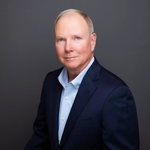The CEO Addiction to Busyness

You see that’s “busyness” with a Y, correct? I first heard of this affliction over 25 years ago when a writer referred to it as “hurry sickness.” Construction execs become enamored of being the knight on the white charger riding to the rescue of every challenge in their organizations. Before they realize it, they have put themselves on a destructive path towards a hedonic treadmill which they cannot seem to control or switch off. Worse, they set the tone for their teams as everyone mimics the boss’s behavior. Everything is a rush, every brushfire threatens to turn into a conflagration, and there is no time for deep introspection, discussion, innovation, or long-term thinking.
Please tune in this week as Wayne explains how this addiction happens so frequently to well intentioned contractors and offers a five step “detox plan” to break the destructive cycle. Does this message resonate with you? How have you seen “busyness addiction” manifest itself in your company? What tools have been successful in stopping this addiction? Please email us at [email protected]
In an era where leadership and expertise are the keystones of success, the need for nurturing future leaders in the construction industry has never been more critical. At our Contractor Business Boot Camp, we're committed to helping emerging leaders and smaller construction firms sharpen their leadership, financial, and business development skills, empowering them to conquer the challenges of tomorrow. A new class begins in Feb 2026 at Dallas. Take the first step toward their thriving future – enroll now! Contact Charlotte at [email protected] to find out more.
Download the time log here.
(DESCRIPTION)
Logo, Performance Construction Advisors
Logo drops into the middle of a blue screen.
Host Wayne Rivers appears in front of a white screen and talks to the camera.
On screen text, Wayne Rivers, Performance Construction Advisors
(SPEECH)
WAYNE RIVERS: Hello, everyone. This is Wayne Rivers at Performance Construction Advisors, where We Build Better Contractors.
This week I want to talk about the CEO addiction to busyness. But first, before we go there, we sponsored the best webinar I think we've ever had in early September this year, and it's available on our website. Rich Jones from BuildWell Health talked about, during Construction Suicide Prevention Week, but he talked about the importance of mental health and construction. And he was fabulous. He talked about his own personal struggles. He talked about some of the things he does in business to improve mental wellness among construction companies.
And listen to these three things. He said 40 million people have substance abuse issues, but only 6% will ask for help. Only 6% of people ask for help when they're struggling. Wow. The second thing... Maybe it's the third thing. Oh, the second thing is the number one predictor of addiction among people is the age at which they start using. The earlier, the worse. And then the third thing is family history is the number two predictor. So, number one is age. Number two is family history.
Rich was absolutely magnetic in his presentation, and I hope you'll go and review that webinar and share it with the other people in your organization. It was as powerful a webinar as we've ever done. Absolutely.
Okay. This week I want to talk about the CEO addiction to busyness. And this came from the CEO briefing in September of '25. Let me begin reading a little bit from the article.
Ironically, the very qualities that make leaders successful, drive, discipline, commitment, can also make them vulnerable to this destructive cycle. True. True. I've been observing this among contractors for 36 years now. And it's not just contractors. It's anybody who's ambitious and driven and wants to be successful. We know that one of the keys, one of the prerequisites to long-term success is hard work. Sometimes the hard work takes on a life of its own.
Second thing, leaders are stretched thin, overwhelmed by responsibilities, and yet unable to escape the cycle. There are solutions. Some are effectively drowning. The American Psychological Association lists stress as the leading cause of executive burnout. The Mayo Clinic ties chronic stress to cardiovascular disease and anxiety disorders. Deloitte found that 81% of C-suite leaders have experienced burnout. A staggering 96% report a decline in mental health. And then 70% of executives are actively contemplating resignation. Wow. Is that true among our construction audience? I don't know. I hope not. I hope it's not that epidemic. But those are scary numbers. Those are scary numbers.
Now, what about this is important to you? Well, come on. I mean, to be able to function at a high level, you've got to have balance in your life, and this addiction to busyness is a barrier to having that balance.
The root of the problem. Contractors are overwhelmed, overworked. The problem is self-inflicted, I'm afraid. We go through fire drills all the time because of conflicting priorities and we're working on this job and suddenly we have to pivot to that job over there. And probably the worst thing about this addiction to busyness is that we as leaders are being poor role models to the people with whom we work. So, if those young, ambitious people see you as the senior leaders working 80 hours a week and zipping from one thing to another in a madcap fashion, they're going to say, "Hmm, that's what I need to do to eventually be the senior leader here." And you wouldn't want that for your children. You wouldn't want that for your potential successors either. And I know you want to model better behavior for all those folks.
The dichotomy is this. Busyness, B-U-S-Y-N-E-S-S, is like a drug. It feels like proof of our value. I know sometimes, not so much today, but back in the day, that I felt like a white knight on a white horse with my lance riding to the rescue when I was able to be super busy. And it just seemed like... It almost gave me the illusion of heroism. Heroism is a whole separate thing. We can talk about that later. Busyness is not heroism.
Organizations tend to reward overwork. So, one of the fallacies in the way senior leaders judge other people in the organization is by their busyness. And we conflate that busyness, that 80-hour a week person, with their commitment. It could be that they're just poorly organized. It could be that they're inefficient. It could be they're doing things that they really shouldn't be doing in the execution of their job. There could be a lot of reasons for those 80 hours a week. Is somebody really productive for every hour of the 80? No. Maybe a few, but no, they're not. So, rewarding that overwork is a bad thing.
The fear of falling behind. Golly, that's epidemic in construction because it's easy to do. Schedules are so ambitious. And the fear of missing out is the thing too. As senior leaders in particular, you want to be all over the organization. You want to have your finger in every pie in the organization because you have a fear of missing out on some piece of knowledge.
I remember we were going through a succession with a father and son team, gosh, ages ago, probably a quarter-century ago now, and we said, "Okay, now to be able to retire, Dad, what do you really want?" He kept saying, "I just want to know what's going on." "Okay, define that. What does that mean? Do you want financials? Do you want job cost reports? Do you want to interview a project manager or superintendents periodically? What does that mean?" He kept saying, "I just want to know what's going on," which meant that he wanted to know everything because he had a fear of missing out. He had a fear that some little piece of information that the rest of us thought might be insignificant to him would be a big deal. He may have been right, but that's no way to define your retirement. I just want to know what's going on. There's got to be better guardrails than that.
Busyness triggers endorphins and dopamine. It's like if you remember all the articles way back when about runner's high, it's the same thing. Dopamine and endorphins. And busyness triggers that too. So, it is easy to become addicted to that flood of mental wellbeing feelings.
And then busyness gives us the illusion of productivity. Again, are all 80 hours a week product... No. Please, that's not going to happen.
All right, what's the detox plan then? What's the detox plan? Acknowledge the problem. I've recommended this before. Very, very, very few of our members have taken us up on it. We can give you a link to a time log. And it's so easy. It's so simple. You just tuck this in your back pocket, and you notate every 15 minutes how you spend every 15 minutes. From the time you get up on the work week Monday until you finish up the work week on Friday or Saturday, notate every 15 minutes. You will be flabbergasted at how much of your time is wasted, that you waste, but also how much of your time is wasted by other people. We don't guard our time the way we should as senior leaders. So, we can give you a download for this time log, and you should use it.
Ask questions of yourself and your other people. Are you spending more time on high-value work that produces the greatest return on time, energy, and money? Are you feeling more engaged and less overwhelmed? This is a way to gauge progress and to engender your people asking these questions of themselves. The root causes. Am I willing to exercise discipline over my calendar and invest my time where it truly matters? Will that investment make a lasting difference to others and to the performance of my organization?
So first, to acknowledge the problem. Second, identify root causes. Third, redefine productivity and performance. So, there should be KPIs for your company. You have KPIs, and they may be profitability or adherence to schedule, or they may be something else. Why can't you have KPIs at the individual level too, for exactly how you're going to measure progress? It should be a part of people's job descriptions. How are you going to measure their progress? How are you going to evaluate whether they're productive employees or less productive employees? So, they should already be there. Use them.
The fourth thing, track that progress and make adjustments as you go on. Fifth, this is really important. This gets back to modeling effective behavior. Embed a sustainable, sustainable culture of smart work. People always say, "Don't work harder, work smarter." And I agree with that a thousand percent.
The hard truth, making change is a choice. It really is. So, if you're going to break out of this cycle of addiction to busyness, it's got to be a choice that you make and then you have to put a detox plan in place and execute.
I'd like to hear from you. [email protected]. Let me hear from you. This is Wayne Rivers at PCA, where We Build Better Contractors.
(DESCRIPTION)
On screen text, Wayne Rivers, Performance Construction Advisors Performance Construction Advisors logo drops into the middle of a blue screen.


